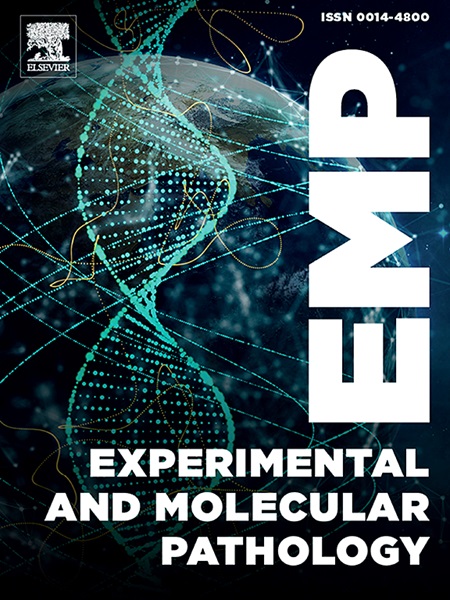Research progress of sarcopenia: Diagnostic advancements, molecular mechanisms, and therapeutic strategies
IF 3.7
4区 医学
Q2 PATHOLOGY
引用次数: 0
Abstract
Muscle atrophy or loss is an important sign of human aging. As the aging society approaches and human lifespan prolongs, sarcopenia has emerged as one of the significant risks influencing the quality of life of the elderly. Sarcopenia is a progressive geriatric syndrome characterized by the deterioration of skeletal muscle mass and function, which can result in an increased risk of falls, fractures, restricted physical activity, disability, mortality, and a remarkable escalation in the risk of cardiovascular diseases among the elderly. This work synthesizes recent advances in sarcopenia research, critically evaluating diagnostic frameworks, histopathological hallmarks, and molecular pathways driving disease progression. Additionally, we provide an in-depth analysis of evidence-based exercise and nutritional interventions, identifying key research gaps. These insights offer valuable references for future research on sarcopenia and clinical management, as well as lifestyle interventions such as exercise and nutrition.
肌少症的研究进展:诊断进展、分子机制和治疗策略
肌肉萎缩或丧失是人类衰老的重要标志。随着老龄化社会的临近和人类寿命的延长,肌肉减少症已成为影响老年人生活质量的重要风险之一。骨骼肌减少症是一种以骨骼肌质量和功能退化为特征的进行性老年综合征,可导致老年人跌倒、骨折、体力活动受限、残疾、死亡的风险增加,并显著增加心血管疾病的风险。这项工作综合了肌少症研究的最新进展,批判性地评估了诊断框架、组织病理学特征和驱动疾病进展的分子途径。此外,我们还对基于证据的运动和营养干预进行了深入分析,确定了关键的研究空白。这些见解为未来肌肉减少症的研究和临床管理,以及运动和营养等生活方式干预提供了有价值的参考。
本文章由计算机程序翻译,如有差异,请以英文原文为准。
求助全文
约1分钟内获得全文
求助全文
来源期刊
CiteScore
8.90
自引率
0.00%
发文量
78
审稿时长
11.5 weeks
期刊介绍:
Under new editorial leadership, Experimental and Molecular Pathology presents original articles on disease processes in relation to structural and biochemical alterations in mammalian tissues and fluids and on the application of newer techniques of molecular biology to problems of pathology in humans and other animals. The journal also publishes selected interpretive synthesis reviews by bench level investigators working at the "cutting edge" of contemporary research in pathology. In addition, special thematic issues present original research reports that unravel some of Nature''s most jealously guarded secrets on the pathologic basis of disease.
Research Areas include: Stem cells; Neoangiogenesis; Molecular diagnostics; Polymerase chain reaction; In situ hybridization; DNA sequencing; Cell receptors; Carcinogenesis; Pathobiology of neoplasia; Complex infectious diseases; Transplantation; Cytokines; Flow cytomeric analysis; Inflammation; Cellular injury; Immunology and hypersensitivity; Athersclerosis.

 求助内容:
求助内容: 应助结果提醒方式:
应助结果提醒方式:


